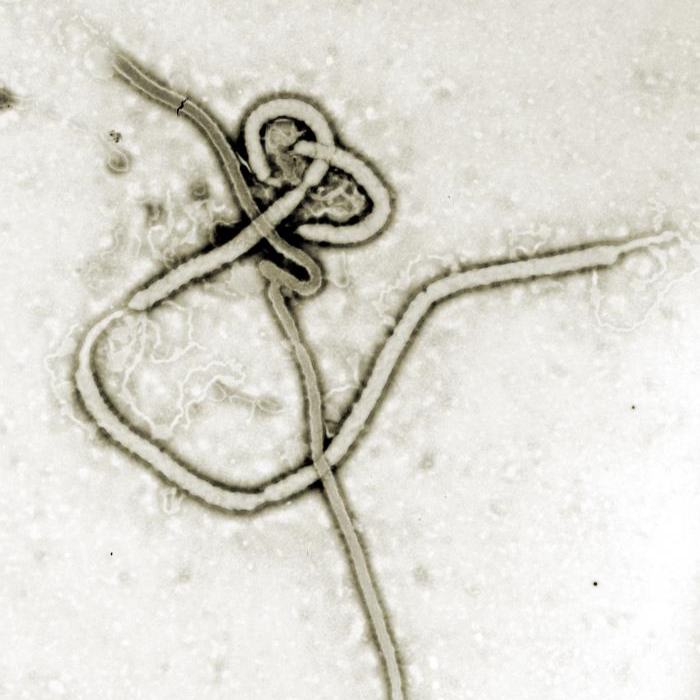In April 2025, the world witnessed the emergence of a new Ebola outbreak in Uganda, specifically caused by the Sudan virus. This outbreak has drawn significant international attention due to its potential implications not only for public health in Uganda but for global health security as a whole. As the Ministry of Health, along with the World Health Organization (WHO), coordinates a robust response, the lessons learned from this outbreak could transform how similar health crises are managed in the future.
Understanding the Ebola Virus in a New Context
]Ebola virus disease, which we often associate with terrifying headlines, has shown a troubling tendency to resurface under unpredictable conditions. The latest outbreak, declared on January 30, 2025, marks another episode in a series of recurrent infections since the first case was recorded in Uganda in 2000. The timing of this outbreak coincides with an ongoing mpox outbreak, and it raised pressing questions about what makes such diseases persist and how we can address them effectively.
“Ebola is not just a challenge for Uganda. It is a global concern. Any outbreaks necessitate our attention as they can disrupt international trade and travel, impacting economies worldwide.” – Dr. Henry Kyobe Bosa
Dr. Henry Kyobe Bosa, Uganda’s National Incident Commander for Epidemics, emphasizes that outbreaks become increasingly challenging to contain as health systems face both resource constraints and public skepticism toward health interventions. This skepticism is particularly relevant today as trust erodes in some communities, exacerbated by misinformation campaigns prevalent since the COVID-19 pandemic.
Initial Detection and Immediate Response
The onset of the 2025 outbreak was marked by the tragic detection of the virus in Kampala, where the initial case involved a male nurse who was diagnosed posthumously. This instance highlighted significant gaps in early detection and response strategies, as the virus had already spread to multiple contacts, forming two transmission chains. The rapid spread to three cities within Uganda demanded an immediate and well-coordinated response.
To mitigate this crisis, the Global Health Community, spearheaded by the WHO, swiftly engaged with Uganda’s Ministry of Health (MoH). Within hours of the outbreak’s confirmation, a national coordination committee was formed, setting the stage for effective action moving forward.
Partner Coordination as a Key Component
Effective coordination built on previous outbreak experiences stands central to responding to disease threats like Ebola. The MoH and WHO worked closely to ensure that resources and response strategies were aligned across various partners. The first coordination meeting set the tone for a well-structured response, capitalizing on years of accumulated knowledge and practices.
International partners, including various countries and organizations, mobilized resources through the WHO Contingency Fund for Emergencies to support on-ground activities. Such coordinated efforts prevented duplication of activities, resource wastage, and ultimately saved lives.
Strategies for Community Engagement and Trust Building
The importance of community trust cannot be overstated in the context of managing an outbreak. WHO and Uganda’s health officials have made significant strides in rebuilding trust through transparent communication and community engagement. Efforts to engage local leaders across various districts have aimed not only at increasing awareness but also at ensuring collective action against the Ebola outbreak. On February 7, 2025, high-level meetings in Mbale engaged community, cultural, and religious leaders to boost awareness and collaboration.
Such initiatives are crucial in dispelling misinformation and ensuring the dissemination of factual data regarding the ongoing outbreak. This has necessitated proactive real-time communication, especially in an era where misinformation can rapidly spread.
Innovative Approaches to Outbreak Management
This outbreak also reflects a significant evolution in treatment and management approaches. The use of new technologies such as cellphone data collection for tracing contacts and monitoring movements has been a game-changer. This modernized surveillance system allows for quicker responses and enhances communication channels between public health officials and the communities they serve.
Additionally, stockpiling essential commodities has proven invaluable in the timely provisioning of medical supplies and resources. The use of remdesivir and other antiviral treatments has noticeably improved patient recovery outcomes, showcasing the importance of preparedness in the face of such outbreaks.
Looking Ahead: Sustainability and Success in Public Health
As the immediate threat of Ebola begins to recede, the focus must quickly shift to maintaining vigilance. Achieving long-term success requires a lasting commitment to post-outbreak strategies, including active surveillance and ongoing community education. It will also be essential to document best practices from this response to foster learning and growth within public health systems.
As described by Dr. Kyobe, “Success means being able to document best practices from this outbreak and learning from the mistakes of the past.” Moving forward, lessons from the 2025 outbreak will inform not only Uganda’s public health policies but will also resonate on a global scale, contributing to a more unified response to future health emergencies worldwide.

